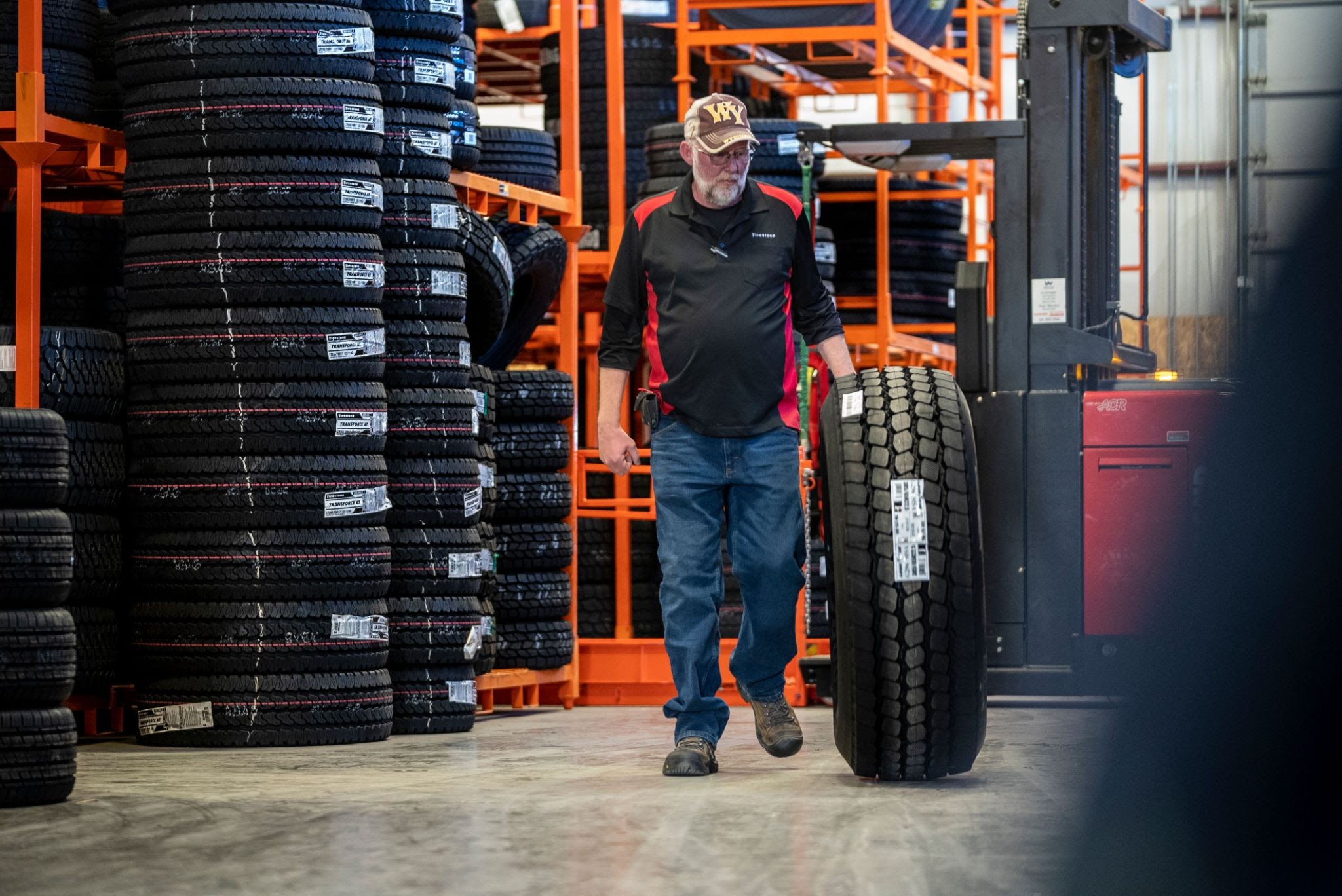The Environmental Benefits of Appropriate Tire Maintenance
Preserving correct tire treatment is frequently forgotten, yet its impact on the environment is profound. Appropriate tire upkeep not only prolongs the life-span of tires but additionally decreases garbage dump waste and contributes to improved air high quality.
Minimized Fuel Intake
Improving tire maintenance techniques can result in a substantial reduction in fuel usage for lorries. tire tracks morris il. Properly inflated tires make certain ideal contact with the roadway surface, minimizing moving resistance and enhancing fuel effectiveness. According to the United State Division of Power, underinflated tires can lower gas mileage by 0.2% for every 1 psi decrease in stress in all four tires. This may appear like a tiny percent, but when multiplied by the number of cars on the roadway, the cumulative effect is substantial.
Along with tire pressure, normal tire turnings and alignments additionally play a vital role in gas performance. Unevenly worn tires can raise fuel consumption as the engine works harder to keep rate and grip. By keeping correct placement and turning tires at advised intervals, motorists can make sure even use and lengthen the life of their tires, eventually conserving fuel and minimizing their carbon footprint.
Extended Tire Lifespan
Expanding the life-span of tires is a crucial element of efficient car upkeep techniques that can produce cost financial savings and environmental benefits over time. By effectively preserving tires, drivers can considerably prolong their use, decreasing the regularity at which brand-new tires need to be made and old ones taken care of. This not just saves valuable sources yet additionally decreases the power and emissions linked with tire production and disposal processes.
Routinely examining tire pressure, revolving tires, and guaranteeing correct positioning are crucial steps in expanding tire life expectancy. Adequate step depth is vital for optimal traction and safety, however it also contributes in how much time tires can be made use of before requiring substitute. Additionally, staying clear of hostile driving behaviors that increase tire wear, such as rough braking and doglegs, can further improve tire durability.
Eventually, enhancing the long life of tires through proactive upkeep not just benefits the atmosphere by lowering waste and saving sources yet also results in set you back savings for car owners by postponing the requirement for new official statement tire purchases.
Lower Discharges Result
Efficient tire maintenance practices add to a decrease in discharges result, straightening with ecological sustainability objectives in the automobile industry. By keeping ideal tire stress degrees, drivers can help minimize these unfavorable ecological effects.
Additionally, well-maintained tires also boost grip and minimize rolling resistance, even more enhancing gas performance. This, subsequently, decreases the amount of exhaust gases launched into the atmosphere. In addition, making sure tires are correctly inflated and aligned can expand the life expectancy of the tires, reducing the regularity of tire substitutes and the connected ecological expenses of tire manufacturing and disposal.

Lowered Land Fill Waste
Offered the favorable impact of appropriate tire maintenance on decreasing discharges outcome, another considerable environmental benefit is the possibility for decreased garbage dump waste. By guaranteeing that tires are appropriately pumped up, aligned, well balanced, and revolved regularly, their life-span can be dramatically expanded.

Improved Air High Quality
Enhancing air top quality with correct tire maintenance techniques is a vital element of sustainable ecological stewardship. When tires are underinflated, they create a lot more moving resistance, causing enhanced gas consumption and higher exhausts of damaging pollutants such as carbon monoxide and nitrogen oxides. Effectively inflated tires not only improve gas effectiveness however additionally decrease the quantity of contaminants launched right into the air.
Moreover, well-maintained tires with appropriate walk deepness and placement add to more secure driving problems, reducing the possibility of crashes that can result in the release of extra contaminants right into the ambience. By prolonging the life expectancy of tires with normal upkeep and turning, fewer tires are disposed of too soon, decreasing the environmental effect of tire disposal and manufacturing processes.
Final Thought
In final thought, appropriate tire upkeep uses various environmental advantages. It is crucial for people to focus on tire upkeep as a basic yet efficient way to safeguard the atmosphere for future generations.
Appropriate tire maintenance not just prolongs the life expectancy of tires however likewise reduces garbage dump waste and contributes to boosted air high quality - tire shop near me. By maintaining correct alignment and rotating tires at advised periods, vehicle find here drivers can make sure even lengthen the life and put on of their tires, ultimately conserving gas and reducing their carbon footprint
By effectively keeping tires, motorists can considerably prolong their use, decreasing the frequency at which new tires require to be made and old ones disposed of.Routinely checking tire pressure, rotating tires, and ensuring appropriate positioning are necessary steps in prolonging tire lifespan. In addition, ensuring tires are correctly pumped up and lined up can prolong the life-span of the tires, decreasing the frequency of tire substitutes and the associated environmental costs of tire manufacturing and disposal.